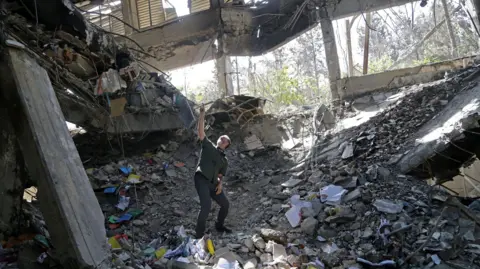For me, hell was not the moment Israel attacked; hell was the moment they wouldn't open the door [of the cell] for us, Motahareh Goonei recalls in an exclusive interview with the BBC. As a political activist in solitary confinement in Iran's notorious Evin Prison, she experienced the terror of the Israeli strike on June 23. Satellite imagery and first-hand accounts bring light to the deadliest Israeli assault on Iranian soil. The high-security prison, known for hosting political detainees, faced an unprecedented tragedy that day, with Iranian officials estimating 80 deaths, encompassing not only inmates but also staff and local civilians. Criticism from Human Rights Watch points to unlawful airstrikes that may qualify as war crimes. Motahareh vividly describes the traumatic sequence of events. Unable to escape the chaos due to blocked doors and filled with choking smoke, she and other inmates witnessed both the horror and humanity as prisoners helped the injured guards amidst the explosive aftermath. The Israeli Defense Forces justified the strike, claiming it targeted supposed intelligence operations against them. However, the nature of the attack and its consequences have drawn intense scrutiny from observers, raising questions of compliance with international humanitarian law, especially regarding civilian lives. The survivors' accounts emphasize the need for adherence to ethical warfare standards, while the fate of many prisoners, particularly vulnerable groups like transgender individuals, remains uncertain, igniting further humanitarian concerns."
Inside the Deadly Attack on Iran's Evin Prison: Survivor's Testimony

Inside the Deadly Attack on Iran's Evin Prison: Survivor's Testimony
In a shocking recount, a political activist trapped in Evin Prison describes the chaos and horror following Israel's targeted missile strike, revealing insights into the aftermath and the plight of those involved.
Motahareh Goonei, a political activist, recalls her harrowing experience during Israel's missile attack on Evin Prison, which left significant civilian casualties. The strike has raised international concerns regarding legal violations in warfare and the treatment of prisoners. Human Rights observers classify the incident as potentially war crimes, highlighting that many among the fatalities were innocent bystanders.











